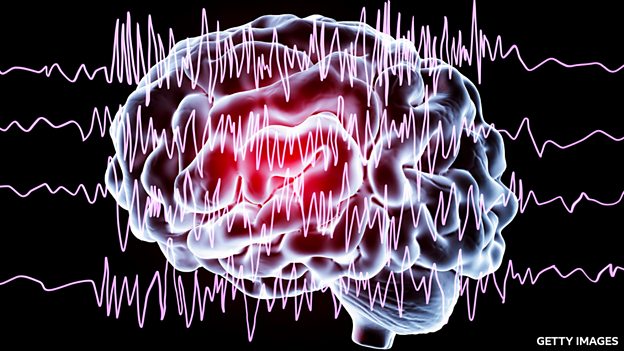患有严重癫痫的英国男孩奥兰接受了世界首例用于控制癫痫发作的颅内设备的植入手术。通过向大脑深处发送电讯号,这个神经刺激器让奥兰在白天的癫痫发作频率降低了 80% 。
Deep brain stimulation has been tried before to treat childhood epilepsy, but the device is usually placed in the chest with electrodes running up the neck. The hope is by putting a rechargeable neurostimulator in a patient's skull, it will reduce complications such as the leads breaking or eroding.
虽然此前尝试过用脑深部刺激来治疗儿童癫痫,但这类设备通常被置于胸腔内,用于刺激脑部的电极需要穿过颈部进入颅内。医生们现在希望通过将一个可充电的神经刺激器放置到患者的颅内,减少导线断裂或腐蚀等不良情况的出现。
Martin Tisdall, the surgeon who led the team at Great Ormond Street Hospital in London, says the device might help a small subset of the 25,000 children in the UK who have epilepsy which is not controlled by medication. Oran also has autism and ADHD, but it's his epilepsy which has been by far the biggest issue in his development. Eight months since surgery, his mum Justine says he's making good progress.
据在伦敦大奥蒙德街医院率领这个研究团队的外科医生马丁·提斯达尔说,这个设备可能会帮助2.5万名英国癫痫患儿中的一小部分,这部分患儿不能通过药物控制癫痫发作。虽然奥兰也患有自闭症和多动症,但癫痫才是他成长发育中一直以来最大的问题。手术进行后八个月,他的母亲贾斯婷说他目前康复进展良好。
Oran is a case study of one. It will take more patients and several years of monitoring before doctors know if they have an effective new treatment for severe epilepsy.
奥兰是一个单人的案例研究。医生们还需要更多的病例和数年的监测才能知道他们是否为重度癫痫找到了一个有效的新疗法。
词汇表
stimulation 刺激
electrodes 电极
neurostimulator 神经刺激器
complication 使更复杂化、困难化的事物
leads 导线
subset 子集,分组
controlled 得到控制的
autism 自闭症,孤独症
ADHD 注意缺陷障碍,多动症
case study 案例研究,个案研究
monitoring 监测
阅读理解:请在读完上文后,回答下列问题。
1. What is new about this treatment?
2. Why is this better than previous treatments?
3. True or False? This device might help 25,000 children in the UK.
4. What conditions, other than epilepsy, does Oran have?
答案
1. What is new about this treatment?
Previous neurostimulators were placed in patients' chests. This one is placed in the patient's skull.
2. Why is this better than previous treatments?
Because there are fewer complications, such as leads breaking or eroding.
3. True or False? This device might help 25,000 children in the UK.
False. This device might help a subset of the 25,000 children in the UK whose epilepsy is not controlled by medication.
4. What conditions, other than epilepsy, does Oran have?
Oran also has ADHD and autism.

